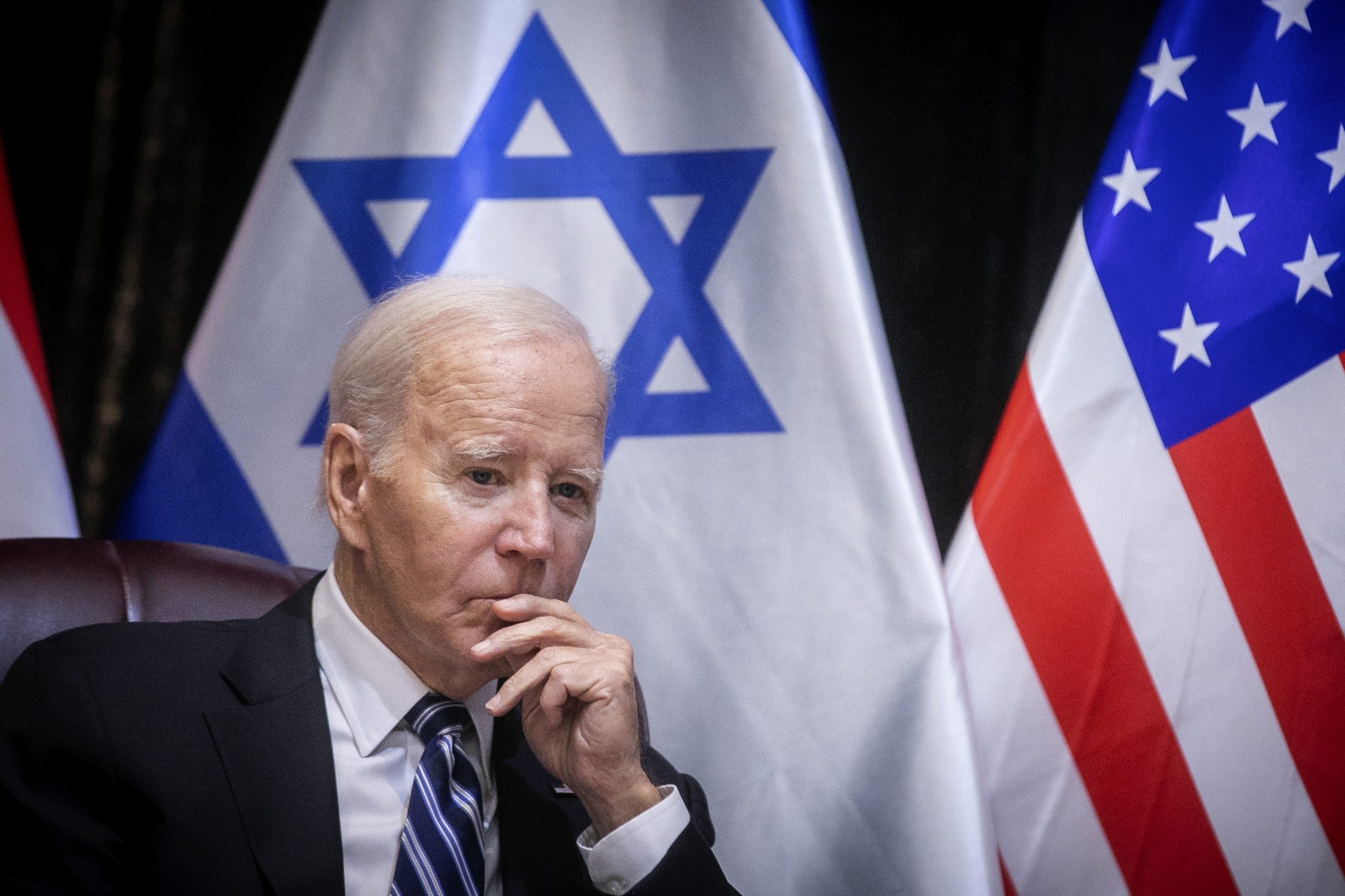Biden is giving an Oval Office address to push for more spending on Israel and Ukraine
The Oval Office backdrop is a signal of the gravity that Biden places on these national security matters.

U.S. President Joe Biden pauses during a meeting with Israeli Prime Minister Benjamin Netanyahu to discuss the war between Israel and Hamas, in Tel Aviv, Israel, Wednesday, Oct. 18, 2023.
President Biden is giving a rare Oval Office address on Thursday at 8 p.m. ET to make the case that it is in Americans’ best interests to hike funding for Israel after the deadly Hamas attack — and funding for Ukraine, embroiled in its long fight against Russia.
The Oval Office backdrop is a signal of the gravity that Biden places on these national security matters. The speech is only the second time he has spoken to the nation from behind the Resolute Desk; the first was in June, after the debt ceiling crisis was averted.
Tonight’s remarks come just after Biden returned from a whirlwind trip to Tel Aviv, where he pressed Israeli Prime Minister Benjamin Netanyahu and his war cabinet on their military strategy to fight Hamas, the Palestinian militant group, after the Oct. 7 attack on Israel. Biden expressed concerns about civilians in Gaza — but he has been adamant that Israel has a right to defend itself, and pledged he would ask for “an unprecedented support package for Israel’s defense” this week.
“My administration has been in close touch with your leadership from the first moments of this attack, and we are going to make sure we have — you have what you need to protect your people, to defend your nation,” Biden said in Tel Aviv.
It’s Biden’s second try to get more Ukraine funding from Congress
Even before the Oct. 7 Hamas attack on Israel, Biden had been planning a speech to Americans about his foreign policy priorities.
He had said he was worried that Congress would undermine his promise to back Ukraine in its fight against Russia. In its most recent government funding bill, Congress failed to include $24 billion to keep military and economic aid flowing to Ukraine until the end of the year.
The White House faces two hurdles on Ukraine aid: waning public support — primarily among Republicans — and a still-unfilled role of speaker of the House. Without a speaker, it’s unlikely the Republican-controlled lower chamber can pass spending bills.
Biden is expected to talk about other priorities, too
There are other national security priorities that Biden may address in his remarks, too.
He had asked Congress for $4 billion in funding to deal with fentanyl trafficking and issues at the southern U.S. border, but that money also was left out of this fall’s funding bill.
Biden has said it’s critical for the U.S. to show leadership in the world, including on funding for both Ukraine and Israel.
“We’re the United States of America for God’s sake, the most powerful nation in the history — not in the world, in the history of the world,” he said in a recent interview with CBS’ 60 Minutes.
“We have the capacity to do this and we have an obligation to … And, if we don’t, who does?”
By Deepa Shivaram.

